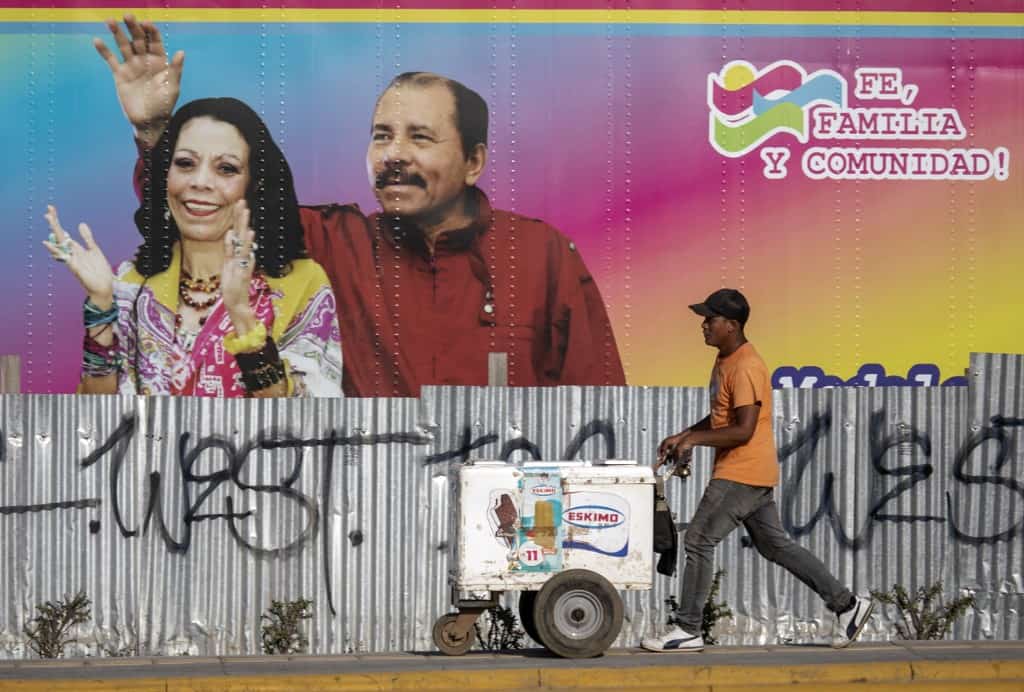Nicaragua’s President Daniel Ortega, who says he will run for a fourth consecutive term in November, has been cracking down hard on the opposition for months.
No less than seven presidential hopefuls have been arrested since June, with protesters calling Ortega a dictator and demanding he stand down.
The European Union slapped sanctions on his wife and vice-president, Rosario Murillo, Monday.
Here we look back at the Central American country’s slide into authoritarianism since 2018, when anti-government protests were violently suppressed.
Pre-election arrests
The roundup of Ortega’s possible challengers in the November presidential election began in June when Cristiana Chamorro, the daughter of former president Violeta Barrios de Chamorro, was placed under house arrest.
Chamorro was polled as the favorite to defeat Ortega.
Since then, six more opposition presidential hopefuls have been among about 30 people detained by Ortega’s government for threatening Nicaragua’s “sovereignty.”
All are charged under a widely criticized Ortega law passed in December which has been seen as a means of freezing out challengers and silencing opponents ahead of the election.
‘Dictator’
The EU and US have called on Ortega to release those arrested and to start talks with the opposition.
Top US diplomat for Latin America, Julie Chung, tweeted that the arrests “should resolve any remaining doubts about Ortega’s credentials as a dictator.”
The former Sandinista leader governed Nicaragua from 1979 to 1990, returned to power in 2007 and has won two successive re-elections since then.
On Monday the 75-year-old former leftist guerrilla confirmed that his wife, vice-president since 2017, would again be his running mate.
Bloody protests in 2018
Ortega has been accused of increasing authoritarianism, especially following the brutal repression of anti-government demonstrations in 2018 that left about 325 dead and more than 100,000 in exile.
Those protests were triggered by a now-scrapped social security reforms, with demonstrators accusing Ortega and Murillo of establishing a corrupt and nepotistic dictatorship.
Sanctions
Washington imposed sanctions on Ortega’s government and inner circle during the 2018 demonstrations.
In June it imposed fresh sanctions against three Nicaraguan officials and the president’s daughter, while accusing the regime of undermining democracy and abusing human rights.
On Monday the EU also slapped new sanctions on Murillo, her son Juan Carlos and six government officials for “serious human rights violations.”






